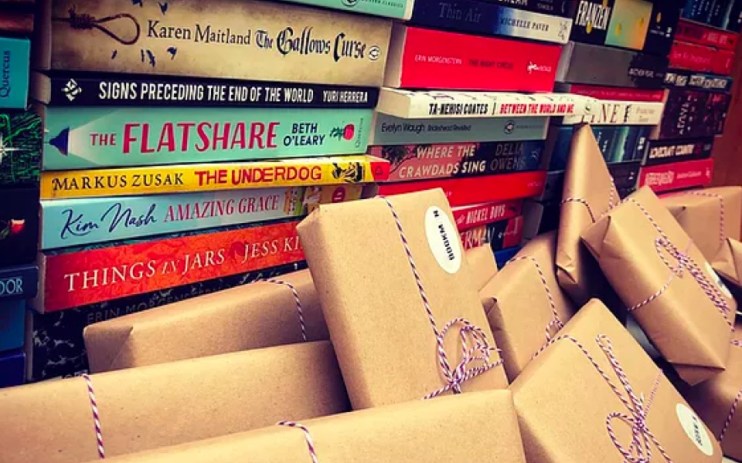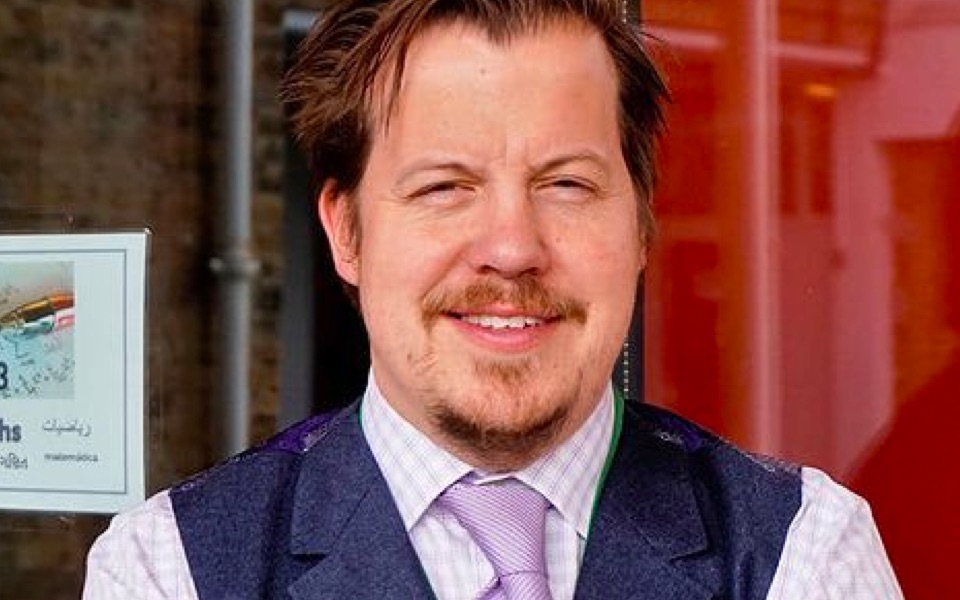We got an expert to pick three books pefect for City A.M. readers

Throughout lockdown one of the pleasures coronavirus has been unable to take away is reading. According to the Reading agency, one in three adults is reading more, rising to almost one in two 18-24 year olds. And while many of us rely on a combination of celebrity book clubs and Amazon for our recommendations, Sam Draper, otherwise known as the London Bookman, is offering a tailored subscription service sourcing books from independent book shops and helping support the precarious publishing industry.
We caught up with him to find out the secret of choosing the perfect book, and asked him to recommend three books perfect for City A.M. readers.
Tell us your story as a bookseller
I had a part-time job in a bookshop during my university holidays. Over 20 years later, my job as a full-time English teacher was changed to being a full-time Dad on Shared Parental Leave. A glass of red wine and an inspirational conversation led to the idea of The London Bookman, a virtual Bookman subscription that I could develop and grow whilst pushing a pram around local independent bookshops.
Four years later, and two children, and The London Bookman is still a virtual book subscription service, but my clients are global, and range from some very lucky five year olds, to a High Court Judge, and a member of the Royal Household. It’s still a small and personalised business, but with my social media presence and personal recommendation, the community of London Bookman readers is continually growing.

How do you think people generally tend to pick their books and what are the limitations of this paradigm?
Most people pick books based on comfort or recommendation. Comfort means the same author or the style of cover you see in a bookshop. The design of book covers works to draw people to similar genres and types of story, and people know what they like (or know). Recommendation is a wonderful thing, with Celebrity Book Clubs, or friends suggesting Must Reads.
You probably have friends you trust to recommend good books, but often you don’t want to say you don’t like something they are really enthused about. A personal recommendation says more about the person giving it, than the person receiving.
My job at The Bookman is to work out how comfortable the reader is to receive something new or different. We tend to avoid the best sellers or the Amazon Top Ten. And most importantly, this isn’t about what I like to read. No book snobbery is allowed. I’m not trying to find books that I enjoy for others to be subjected to.
This is all about finding the right book for the reader I’m curating for. Every book has a reader, so every Bookman Bundle is different. Each book is personalised for each reader. Sending a personalised book subscription as a gift, meanwhile, is a way to share some pleasure remotely – and the increase in my customers has reflected this. It has been a big year.
How important is it that we protect local stores and why?
The main source of my book stock is from independent bookshops, and although they shut doors during lockdowns as non-essential services, their click and collect services and mailing services were vital.
Amazon is great for providing cheap products when money is tight, but it doesn’t feed back into the publishing industry and ensure high quality diverse books get published. The local independent bookshops are the lifeblood for that personalised recommendation and for providing unique and original choices. The experience of bookshops, along with the experience of public libraries, is a must for encouraging reading and a love of books in young children.
The algorithms used by Amazon and Good Reads provide the same book recommendations to everyone and the market is awash with similar authors or similar books. It’s a cycle of approval and marketing and reassurance to the reader that doesn’t allow for the personal choice. The London Bookman and local bookshops are focused on the reader first, and their experience. The choices are more varied, the books are chosen based on quality, not just price or discount, and the experience of browsing and handling books is magical.
What’s your process for choosing books?
We start with a chat, trying to get a sense of the reader – who they are, and what they might enjoy – and it’s not always as predictable as you might think. The magic is finding out about them; their likes and dislikes, their comfort zone, their favourite authors, their areas of curiosity about cultures or historical eras, their capacity for romance, magic, violence, or reality.
It’s about finding out which books they love, which they hate, and which books they’ve already read. My ongoing task is to read a wide range of books by different authors and in different genres, and make choices based on that magical instinct that is The Bookman.
Reading is incredibly personal and often based on preferences from childhood. The Bookman is not a book snob and will never judge the reader by what they read – as long as it brings them joy.
Book 1: The Bonfire of the Vanities by Tom Wolfe
You may have had your fill of historical fiction and the comings and goings of Henry VIII and his family, but when you want to read about power, politics, greed, and excess, no era or place sums it up better than New York in the 1980s.
Tom Wolfe’s wonderful satire The Bonfire of the Vanities captures all of its glory. The backstabbing, the human weaknesses, the sheer gall of it all. No book before or since has quite captured Wall Street in the same way. And following city trader Sherman McCoy through his ups and downs is both a joy and a source of many moments to cringe and feel lucky you aren’t him.
If you enjoyed The Wolf of Wall Street, Billions, and relished Michael Douglas as Gordon Gekko, this is definitely for you. Fun, cruel, and unashamedly money.
Book 2: The Last Thing He Wanted by Joan Didion
A politically intriguing novel with a difference, The Last Thing He Wanted follows the unlikely but breathless journey of a journalist from wealth and security covering political campaigns in Washington who travels to Central America to cover the arms trade.
Twisting the ideas of Graham Greene and John Le Carre into a novel that is less spy fiction, Didion creates characters and places that are realistic, dirty and gritty, and show the power, politics and corruption on the doorstep of democracy.
If you liked Narcos or The Serpent, this novel provides the same thrill and danger of a human being out of her comfort zone, but trying to find truth in some very dark places. Political fiction writing at its best with an espionage twist.
Book 3: The House of Cards by Michael Dobbs
Look past the Americanised Netflix series starring Kevin Spacey, and you will find the source of this story of power, politics, status, and downright skullduggery is Michael Dobbs novel The House of Cards.
Set in the UK, with our own particular brand of class and political shenanigans at its heart, Dobbs imagines a corrupt and delightfully sordid political system.
Without naming names or sharing any political knowledge or affiliation, this novel romps through the Houses of Parliament, wandering every back passage and dark room where decisions are made and fates decided.
Nothing is beyond protagonist Francis Urquhart, and he wants everything. The ultimate seat of power is his goal, and he finds unique and ingenious ways to get there. Dobbs writes with pace and joy, despite the obvious satirical examination at what power can do to an individual and those he wants to best. A joyous page-turner that makes you look a little differently at government and decision making.
• A Bookman Monthly Bundle costs from £15 a month. For more information go to thelondonbookman.com
